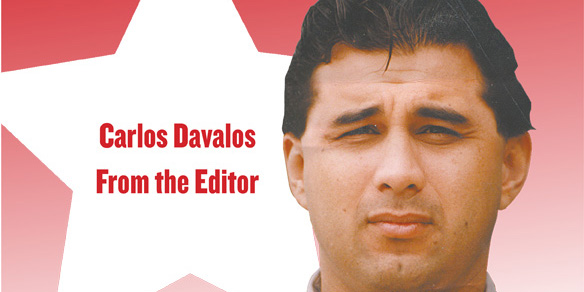If I had a bigger ego, if I was pettier and if I had more power, money and or influence to lose — sprinkled in with a large amount of insecurity —the second to last thing I would want is for someone to question my authority.
The last thing I would want is attention. The first thing I would want is for the questions and their askers to go away.
I suspect there are politicians, administrators and authoritarians who feel the same way.
Years ago when Jesus Gandara, the former Sweetwater Union High School superintendent, was living a pre-pay-to-play-go-to-jail life, a Star-News reporter found out about a trip he took to Texas ostensibly to interview for a job. At the time, if memory serves, he was still under contract here and he wasn’t supposed to be looking for employment elsewhere without letting the school board know.
The superintendent wasn’t happy with the questions reporter Jon Campbell was asking at the time and Gandara and his enablers applied pressure on this paper hoping to make them go away. The story, eventually, ran.
Years later Gandara was busted for taking bribes while superintendent and though Campbell’s story wasn’t a part of that episode, his relentless pursuit and questioning offered a glimpse of his and the district’s character before the superintendent’s downfall.
In 2016 then newly-elected Otay Water District board member Hector Gastelum happened to be at a function I was attending. Taking advantage of the coincidence I approached him to ask about remarks he made on social media regarding Muslims; this was before his Trump-like Tweet storm about people of the Islamic faith.
The encounter ended with Gastelum telling me he feared Muslims and his walking away from the interview while telling me to fornicate with myself. Months later Gastelum, who appears to be losing his bid to be Chula Vista’s mayor, was censured by his water board colleagues for a different set of Muslim-bashing questions he made on social media.
These are just two examples of politicians behaving poorly while serving the public. There are other instances that involve council members, police and school administrators. The instances are infrequent enough that they should not sully the reputation of the majority of people who do their job professionally, honorably and with the best of intentions.
Nevertheless it is vital we remember no one is above questioning. Not elected officials, not police, not school board members, not even the president of the United States.
To avoid asking difficult questions, refrain from pressing hard for direct answers or ignore those charged with conducting the public’s business is a disservice to ourselves and to each other.










